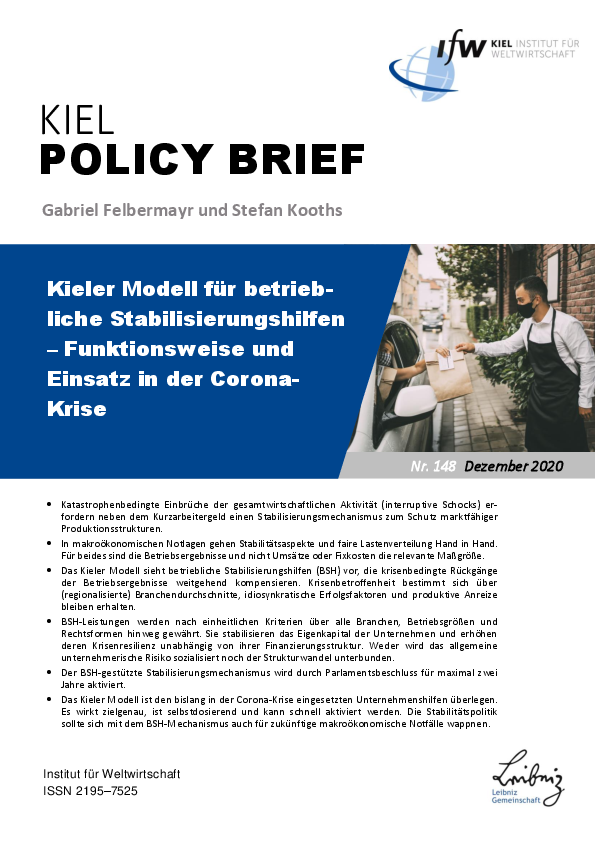Policy Article
The Kiel Model of Corporate Stabilization Grants – General setup and application during the COVID-19 crisis
Authors
Publication Date
Key Words
Related Topics
Germany
Companies
Economic & Financial Crises
Fiscal Policy & National Budgets
Economic Policy in Germany
In an economy-wide emergency, effective macroeconomic stabilization requires a mecha-nism to protect sound production structures from collapsing. While the short-time work compensation scheme is an important instrument, it does not stabilize the corporate sector sufficiently. Stabilization and fair burden sharing go hand in hand when an interruptive shock hits the economy. To design an adequate policy response, the change in corporates’ operating sur-plus is the variable to watch for, not revenues or fix costs. Against this backdrop, the authors propose a Kiel Model that builds upon corporate stabilization grants (CSG) that compensate the lion share of crisis-induced reductions of operating surpluses. The impact of the crisis is measured along industry averages (further differentiated by regions) that are beyond the reach of beneficiaries. Thus, idiosyncratic success factors and productive incentives are pre-served. CSGs are given in accordance with universal criteria for all industries, enterprise sizes and legal corporate structures. By stabilizing equity buffers these transfers enhance the resilience of corporates independently from their form of financing without nationalizing general entrepreneurial risks or hampering structural change. Activating the CSG-based mechanism requires an act of parliament. It shall not be in force for a period longer than two years. As a targeted, self-adjusting, and easy-to-trigger policy instrument, the Kiel Model is superior to all corporate support schemes used so far in the COVID-19 crisis. The authors recommend that policy makers should also use the CSG mechanism to prepare for future macroeconomic emergencies.







